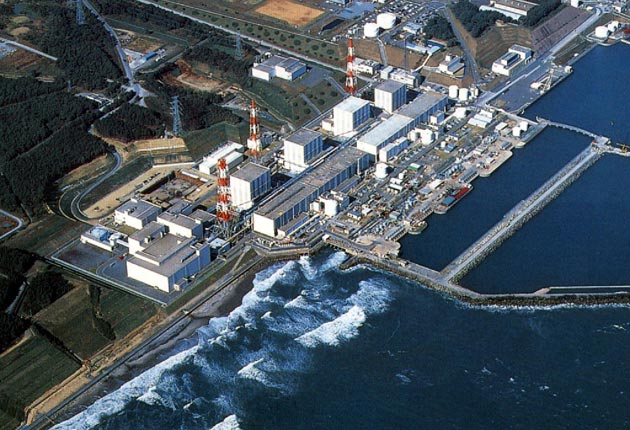State of emergency declared over fears of nuclear leaks

Japan was fighting to avert a nuclear disaster last night as it declared a state of emergency and evacuated thousands of people from around two damaged power plants.
Officials conceded that radiation levels were 1,000 times higher than normal inside the Fukushima Daiichi power station, about 170 miles north of Tokyo, and were planning to release radioactive vapour to ease pressure on a reactor. The authorities conceded that some radioactive leakage could have taken place and just as they were thought to have brought the cooling problem under control an emergency was declared at a second plant which also suffered damage to the equipment cooling a reactor.
An eighth of the world's nuclear power reactors are in Japan, and yesterday three plants were reported to have received some damage. A fifth of the country's nuclear power generating capacity was closed down.
The most serious problem was at the Fukushima No 1 reactor; a fire broke out at another plant and a third was said to be leaking water. Yesterday almost 3,000 residents in Onahama City were ordered to evacuate as Tokyo Electric Power Co (Tepco) confirmed that pressure inside a reactor at Fukushima had risen after a cooling system was knocked out by the earthquake.
By late yesterday, radiation levels were increasing within the turbine building and the pressure had risen to twice its designed capacity. The company said it had been trying to restore its emergency power system so it could reverse the falling water levels inside the reactors and avert the exposure of nuclear fuel rods.
As experts handling the emergency prepared to release radioactive vapour to ease the pressure, Chief Cabinet Secretary Yukio Edano said the amount of radioactive element would be "very small" and would not affect the environment or human health. "With evacuation in place and the ocean-bound wind, we can ensure the safety," he said. Initially, everyone within a two-mile radius of the plant was told to leave the area or stay indoors after a state of emergency was declared at a nuclear power plant for the first time in Japan but later the evacuation of all people within a six-mile (10km) radius was ordered. Mr Edano insisted that the alert was a matter of precaution. "We launched the measure so we can be fully prepared for the worst scenario," he said. "We are using all our might to deal with the situation."
Experts said there could be radiation leakage if water levels in the reactor fell and the temperature of the nuclear rods rose, but warned against panic. "Even if fuel rods are exposed, it does not mean they would start melting right away," Tomoko Murakami, leader of the nuclear energy group at Japan's Institute of Energy Economics, told Reuters. "Even if fuel rods melt and the pressure inside the reactor builds up, radiation would not leak as long as the reactor container functions well."
Tepco said it had shut down its three working reactors at the plant, though there were fears that the other three, which had been under maintenance, could leak water.
Further north in the worst-hit Miyagi prefecture, a fire broke out at another nuclear plant. Smoke billowed from the building where a blaze started at one of the Onagawa power plants. But Tepco said the flames, which had not been near the plant's reactor, had been extinguished. Meanwhile, another Onagawa reactor was leaking water. The International Atomic Energy Agency said that the Oganawa, Fukushima-Daini and Tokai nuclear power plants had all been shut down automatically.
With few natural resources, Japan relies on nuclear plants for a third of its power. Of the 442 active nuclear power reactors worldwide, 54 are in Japan.
Experts said that the Japanese assess the earthquake risk in any area where it builds a plant, with regulations stipulating they must be designed to withstand a 6.5-magnitude quake.
Subscribe to Independent Premium to bookmark this article
Want to bookmark your favourite articles and stories to read or reference later? Start your Independent Premium subscription today.

Join our commenting forum
Join thought-provoking conversations, follow other Independent readers and see their replies